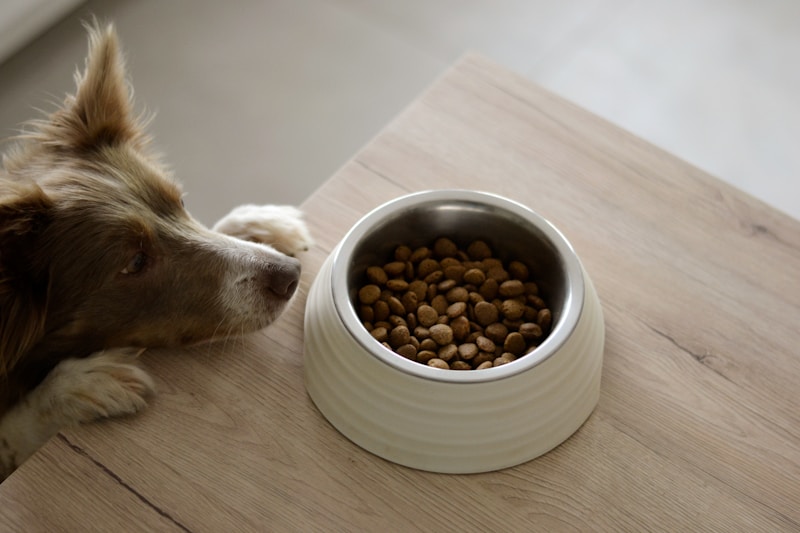Pet nutrition is a subject every pet owner cares deeply about, but it’s also an area full of confusion and misinformation. Whether it’s advice from friends, social media posts, or flashy product labels, it’s easy to get swept up in myths about what’s truly best for your furry companion. In this article, we debunk some of the most common pet food myths to help you make informed decisions for your pet’s health and well-being.
Myth 1: Grain-Free Food Is Always Better for Pets
One of the most persistent myths is that grain-free diets are healthier or more “natural” for pets. This idea gained popularity with the rise of gluten-free diets for humans, but it doesn’t necessarily apply to our pets.
The Truth: Most pets—especially dogs—can digest grains like rice, oats, and barley quite well. In fact, grains are a valuable source of carbohydrates, fiber, and essential nutrients. Grain-free diets are typically recommended only if a pet has a diagnosed grain allergy, which is relatively rare.
Furthermore, the FDA has investigated potential links between grain-free diets and heart conditions like dilated cardiomyopathy (DCM) in dogs. While the research is ongoing, it’s a reminder that “grain-free” doesn’t automatically mean healthier. Always consult your vet before switching your pet to a grain-free diet.
Myth 2: By-Products Are Low-Quality and Harmful
When scanning pet food labels, you might notice the term “by-products” and assume they are unhealthy fillers. Many pet food brands even advertise “no by-products” as a selling point, further reinforcing this misconception.
The Truth: Not all by-products are created equal. In the pet food industry, by-products can include organ meats like liver, lungs, and kidneys, which are rich in essential nutrients and highly digestible for pets. These parts might not be appealing to humans, but they can be incredibly beneficial for animals.
The key lies in the quality and sourcing of the by-products. Reputable pet food manufacturers follow strict safety and quality standards to ensure these ingredients are safe and nutritious. Don’t judge a food solely based on whether it contains by-products—look at the overall nutritional profile and the brand’s reputation.
Myth 3: Raw Diets Are Always Healthier
The idea that pets should eat raw meat because it’s closer to their ancestral diet has gained traction in recent years. Proponents of raw diets argue that cooking destroys vital nutrients and that raw feeding leads to shinier coats, better digestion, and more energy.
The Truth: While some pets may do well on raw diets, they are not inherently superior to commercial pet food and can pose risks if not handled properly. Raw meat can harbor dangerous bacteria like Salmonellas or E. coli, which can make both pets and humans sick.
Another concern is nutritional imbalance. Home-prepared raw diets often lack essential vitamins and minerals, unless they are carefully formulated under veterinary guidance. If you’re considering a raw diet, consult a veterinary nutritionist to ensure it’s safe and balanced.
Myth 4: Pets Should Eat What Humans Eat
It’s tempting to treat pets like family—which they are!—and assume that feeding them human food is a sign of love and care. After all, if it’s good for us, it must be good for them, right?
The Truth: Not necessarily. While some human foods are safe for pets in moderation (like cooked chicken, carrots, or rice), many others can be harmful or even toxic. Common culprits include onions, garlic, chocolate, grapes, and artificial sweeteners like xylitol.
Human meals are often too high in salt, fat, and spices for pets’ digestive systems. Regularly feeding pets table scraps can lead to obesity, pancreatitis, or long-term health issues. If you want to supplement your pet’s diet with whole foods, do so sparingly and under the guidance of a vet.
Conclusion: Trust Science Over Hype
Navigating the world of pet food can be overwhelming, especially with so much conflicting information. The best thing you can do is educate yourself with facts and consult veterinary professionals when making dietary changes for your pet. Labels, marketing buzzwords, and internet advice may be misleading, but science-backed nutrition and regular vet check-ups are the most reliable ways to ensure your pet thrives.
Remember, every pet is unique—what works for one may not work for another. Stay informed, be cautious of fads, and always prioritize your pet’s individual health needs.

